

Transcription
UNITED STATES IS HOLDING THE LARGEST PRISON POPULATION - BUSINESS AND JOB SECURITY IS MORE IMPORTANT THAN MAINTAINING PRINCIPLES OF HUMAN RIGHTS
BY: Luis D. Perez
http://betweenthebars.org/350/luis-d-perez
N.C.C.I. - GARDNER
500 Colony Road, P.O. Box 466
Gardner, Massachusetts, 01440
In my prison experience since 1971, I have been incarcerated in 28 County, State and Federal Facilities. I am writing this report in good faith, fair and in a comprehensive way, based on my own educational and prison experience.
THE SUCCESS AND VICTORIES
I will give a passing grade to The American Prison System, without counting the Maximum Security Federal Facilities and Guantanamo Base. The success is based on the acceptable physical conditions for prisoners. However, the treatment of foreign prisoners in County and State Facilities in the South is complicated, in particular Arizona, Louisiana and Texas.
The United States has maintained a consistency in applying the law in the treatment of individuals. If he or she is victimized by physical abuse, there are proceedings that can be used in Federal Court (INS) "United Nations - Convention Against Torture and Other Cruel, Inhumane or Degrading Treatment or Punishment" - The treaties were adopted by the United States on June 26, 1987 and those treaties have the force of law inside the United States Territories. The only problems that the non-English speaking detainee held in custody does not understand the procedural aspect of these International Treaties.
THE FAILURES IN THE UNITED STATES
Human Rights in the United States Criminal Justice System have been the subject of debate between good and evil, rich and poor, black and white for many years. However, I can honestly say that in America, the Government has been looking at the National Correctional System as a big business industry, holding the largest prison population in the world, more than China, who has more than a Billion People in their country.
I am attaching (2) newspaper articles from 2003 and 2009 for educational purposes. At present the U.S. has almost 3 million people in custody, either in County Jails, State, and Federal Facilities; including those individuals on bail awaiting trial. If we add the people on Parole and Probation we can extend the prison population in the United States to 4.5 million people and more than 7 million people with prison experience.
THE MIXED-FEELINGS OF TOUGH ON CRIME
The Economic problems that we have in America are indeed connected to white collar crime and corruption. The Executive and CEO with (3) piece suits working for the Banking System and the Stock Market rob the country of billions of dollars that adds to the fiscal deficit that we have in the United States.
It is very important that the readers understand that each state in the nation has a unique way of making money from the prison business. For example in Massachusetts they are constantly using certain heinous crimes to play on the public fear and revamp the legal system to keep incarcerated individuals for a longer period of time. The State can't profit from the prison, but job security is a priority for Correctional Staff in County and State Facilities, holding the 80% of the State Budget for Corrections to pay for the entire staff. Fiscal Year Budget for the Commonwealth of Massachusetts is 1.1 billion dollars between County and State.
While this dynamic is taking place the Stakeholders are constantly ignoring the serious culture of corruption that exists in the Legislature and Judicial Branch.
FISCAL YEAR DOC FOR 2004-2008
Staff salaries and fringe: 73%
Health care: 15%
Utilities: 4%
Food: 2%
Programs: 3%
Other: 3%
Because staffing costs comprise the majority of the Department's budget, the Commission focused predominantly on staffing issues in examining and assessing the overall fiscal management capacity and efficiency of the Department.
Other States in the Union are privatizing the Correctional System, so corporations profit along with the whole umbrella of individuals who are working with the State and Federal arm of the Criminal Justice System, in particular the National Sheriff Association.
LEGAL DEBATE ON JUSTICE
The Present Criminal Justice System has many inconsistencies. When a high ranking political or law enforcement person is arrested for any alleged crime they have resources somehow to gain high-level and powerful attorneys. At the end for the most part, they receive minimal bail and even after conviction they receive token punishment often including community work. The common thread of thought is that their reputation has been besmirched and that is punishment enough. Even if they should be incarcerated, their terms are minimal in comparison to others and to be served at "Country Club Like" prisons on military bases throughout the country or on Federal Minimum Security Facilities. Yet their crimes have in many cases taken another brick out of the cornerstone of America, including white collar crimes at the State levels, considerably more so than an armed robber or street level drug dealer.
I can cite many examples of corrupt police officials at the local, State and Federal levels, at the most sensitive levels of police organizations. These crimes involve selling secrets, drugs, robbing banks, protecting drug lords, perjury and even murders. It is shameful that the very people who we depend on, often blindly to protect our interests are more becoming those who we need protection from.
I have read of many police officials and politicians screaming foul when the media reports that such criminal behaviors are becoming the norm in our society. These police or political figures cry, "Don't paint us all with the same brush", or "One rotten apple in a barrel doesn't spoil the whole bunch". I perceive this as the ultimate in hypocrisy as it relates to Massachusetts and many other states in their own application of Criminal Policies.
The campaign of hatred at the National level and persecution against all men in its prisons is playing a major role with the media and Stakeholders by frightening the state populace to the extent that most of them believe that prisoners are coming out over the walls with fangs and horns. The public has been terrorized not by crime and criminals, but by the media and its portrayal "in living color" of it in its presentations. People trust the system to be functional and meet the needs of the public. But they are letting the needs of the public be decided by the media and a few self serving politicians.
THE BUSINESS
The American Criminal Justice System represents the 2nd largest business after the stock-market, the rotation of money is immense, it represents a 8% of the Gross National Product (GNP). If people in America stopped committing crime at all levels for one year, the United States would have a partial economic crisis at all levels.
I personally believe that the Judicial System should pay more attention to the apprehension and prosecution of the so called white collar criminals and those who are playing the corruption cards. Reluctance to do so involves the very economic infrastructure of the entire country.
Law enforcement and media have given much attention to "street crime", and rightly so, but white collar crime and corruption has a much more devastating effect on our society in general. We can't be tough on crime on one hand and arrest millions of people and be corrupt on the other hand. Street crime is very isolated in overall impact. White collar criminals cause a ripple effect that can topple business, companies and the entire banking structure in this country. Hundreds and thousands of people can be the victim of a single white collar criminal, thereby far out "impacting" the community than a single street criminal.
I certainly do not want to minimize the impact of street crime. Considerable harm has been done in that area by criminals and those who are serving time in prison like myself.
CONCLUSION
The United States of America is violating Human Rights Principles by using crime as a business enterprise. If we are going to have laws, we should have them equally apply to everyone or not have laws at all. I beseech you to take into consideration the perception of the Law Enforcement, Criminal Justice and The National Department of Corrections in the States. They border often, on the humorous. They certainly are unfair and discriminatory in operation and application. -- Justice can only be applied to a populace who perceive it to be fair. Many disregard these agencies and departments because they are perceived as political, multi-sided and corrupt beyond salvage... I am hoping that you become alert and aware as these agencies operate their kingdoms.//
LUIS D. PEREZ
Enclosures]
Newspaper Articles
Letter from Inst. For Race & Justice
Report on Mass. Parole Board
The Boston Globe Monday, August 18, 2003
The Nation
One in 37 in US said to have done time
Record 2.1 million in prison in 2002
By Curt Anderson
Associated Press
WASHINGTON - About one in every 37 US adults was either imprisoned at the end of 2001 or had been incarcerated at one time, the government reported yesterday.
The 5.6 million people with "prison experience" represented about 2.7 percent of the 210 million adults in the United States as of Dec. 31, 2001, the report found. The study, by the Justice Department's Bureau of Justice Statistics, looked at people who served a sentence for a crime in state or federal prison, not those held temporarily in jail.
The study is the first to measure the prevalence of prison time among American adults. Last month, the bureau reported that a record 2.1 million people were in federal, state, or local custody at the end of 2002.
Between 1974 and 2001, the number of current and former inmates rose by 3.8 million, the study found. Of those, 2.7 million were previously incarcerated.
Experts say the growing numbers of former prisoners means more people in society will have difficulty finding jobs because of their felony convictions. Many cannot vote and they are more likely to have family or emotional problems that exact a toll on state and local budgets.
The number of people sent to prison for the first time tripled from 1974 to 2001 as sentences got tougher, especially for drug offenses. There are more former prisoners as well, the result of longer life expectancies and a larger US population.
Prison experiences vary greatly by gender and ethnic origin.
"At every age, men have higher chances of going to prison than women, and blacks and Hispanics have higher chances than whites", statistician Thomas P. Bonczar said in the report.
Almost 5 percent of men in 2001 had done prison time, compared with less than 1 percent of women.
No matter their ethnic origin, people between the ages of 35 and 44 in 2001 had the highest rates of lifetime incarceration, 6.5 percent for men, almost 1 percent for women.
About one-third of the former prisoners in 2001 were under correctional system supervision, including 166,000 in local jails. The rest were either on parole or on probation.
The study projects that, by 2010, about 3.4 percent of the adult US population will have had served time in prison. That translates to 7.7 million people.
If 2001 incarceration rates continue at their current levels, about 6.6 percent of the people born that year can expect to serve a prison sentence during their lifetime, based on life expectancy tables, the study said.
That compares with 5.2 percent of those born in 1991 and 1.9 percent of those born in 1974, according to the estimates.
***
The Big Picture
Lock Up, U.S.A.
America may be the land of freedom, but we also lock up more of our citizens than any other nation. That was not always the case. During the Great Depression and the four decades that followed, the incarceration rate hovered around 100 prisoners per 100,000 U.S. residents, slipping a bit during wars, when young men were drafted. Since 1985, however, the incarceration rate has risen five-fold, and the number of inmates has tripled. The increase is due primarily to tougher mandatory sentencing laws at both the federal and state levels and a quantum leap in the number of jailed drug offenders, who now account for one-quarter of the total prison population. Between 1974 and 2000, the number of state prisons rose from 592 to 1,023.
DATAGRAPHIC BY NIGEL HOLMES
RESEARCH BY LORRAINE MONEA
ONE QUARTER OF THE WORLD'S PRISON POPULATION IS IN THE U.S.
***
Charles Hamilton Houston Institute for Race & Justice
Harvard Law School
June 27, 2012
Dear Massachusetts Legislators:
I am enclosing a copy of "Three Strikes: The Wrong Way to Justice", a policy report released today by the Charles Hamilton Houston Institute for Race and Justice at Harvard Law School. The report outlines the case against changes to the Massachusetts Habitual Offender Law, as proposed in Senate Bill 2080 and House Bill 3818. I urge you to carefully consider the arguments put forth in this document as to why the Massachusetts legislature should either reject or significantly scale back this proposed law.
If enacted, this bill will subject hundreds of low-level offenders to unnecessarily lengthy prison sentences, further burden an overcrowded prison system -- putting employees and prisoners at risk -- disproportionately harm individuals of color, and divert precious state resources away from programs proven to reduce violence and improve public safety. It puts Massachusetts squarely out of step with much of the rest of the country in continuing to push "tough on crime" laws that are costly, ineffective, and devastating to communities of color.
There is a better way and we know how to get there. Stakeholders in the state can partner with the Pew Center on the States and Justice Reinvestment, a project of the Council of State Governments' Justice Center, to produce a long-term, data-driven plan to reduce crime and improve our communities' public safety while reducing our prison population. Seventeen states have already undertaken this process, including four of our New England neighbors. These have resulted in safer communities, with funds reinvested in programs that promote opportunity and prevent crime.
The Commonwealth of Massachusetts can proudly point to its historic role in implementing humane and effective reforms in so many areas, including juvenile justice reforms that became a model for this country. I urge you to read this report carefully and to continue this tradition by voting for sensible criminal justice reforms rooted in common sense, and our shared values of fairness and justice.
Sincerely,
[redacted]
ANOTHER WAY TO HOLD PRISONERS FOR YEARS
Parole Decisions
Decisions Made: 120
Unanimous Decisions: 110
Split Decisions: 9
Parole Denials: 95
(5) Year Set Backs: 70
(4) Year Set Backs: 9
(3) Year Set Backs: 10
(2) Year Set Backs: 7
18 Month Set Backs: 1
Continuances: 1
Paroles Granted: 22
Released So Far: 3
Still Awaiting Release: 19
Passed Away Awaiting Release: 1
Unanimous (5) Year Set backs: 70
(5) Year Set Backs At Review: 40
(5) Year Set Backs At Initial: 18
(5) Year Set Backs At Revocation: 15
Paroles After Revocation: 13
Paroles At Initial Hearing: 4
Paroles At Review Hearing: 5

Other posts by this author
|
2023 feb 2

|
2022 dec 26

|
2022 nov 5

|
2022 aug 23

|
2022 jun 23

|
2022 may 4

|
More... |
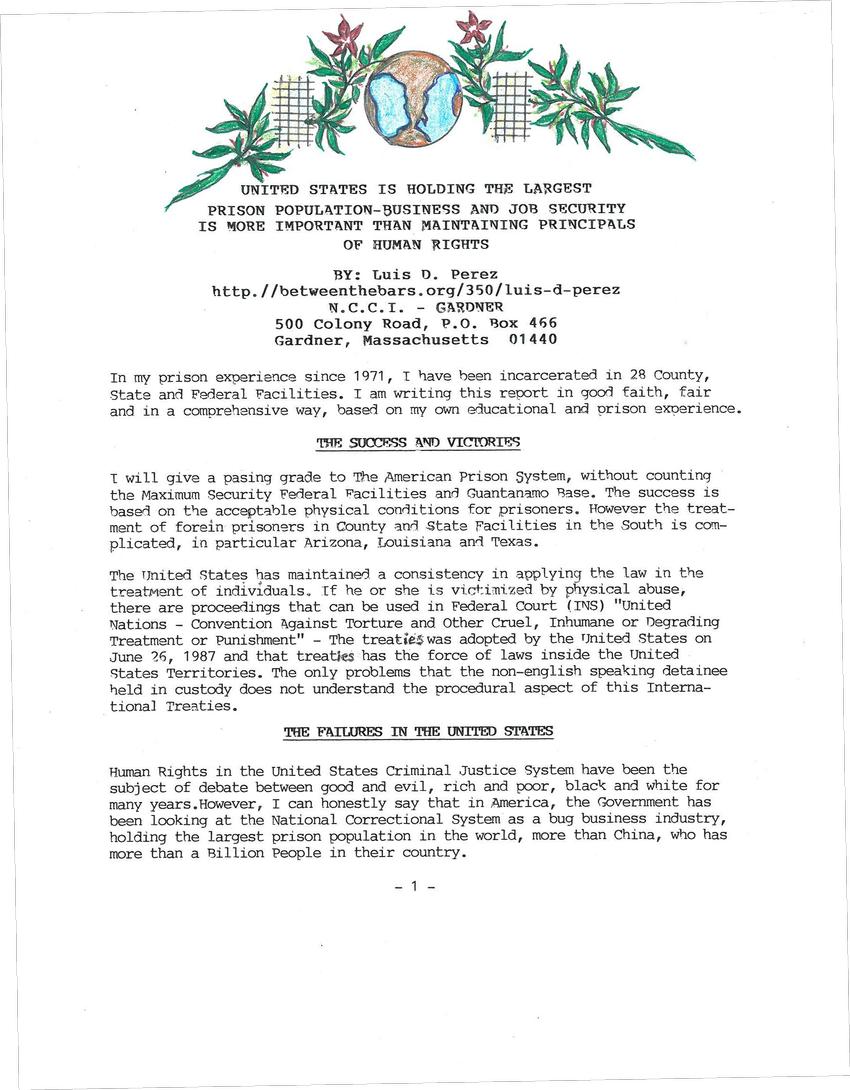
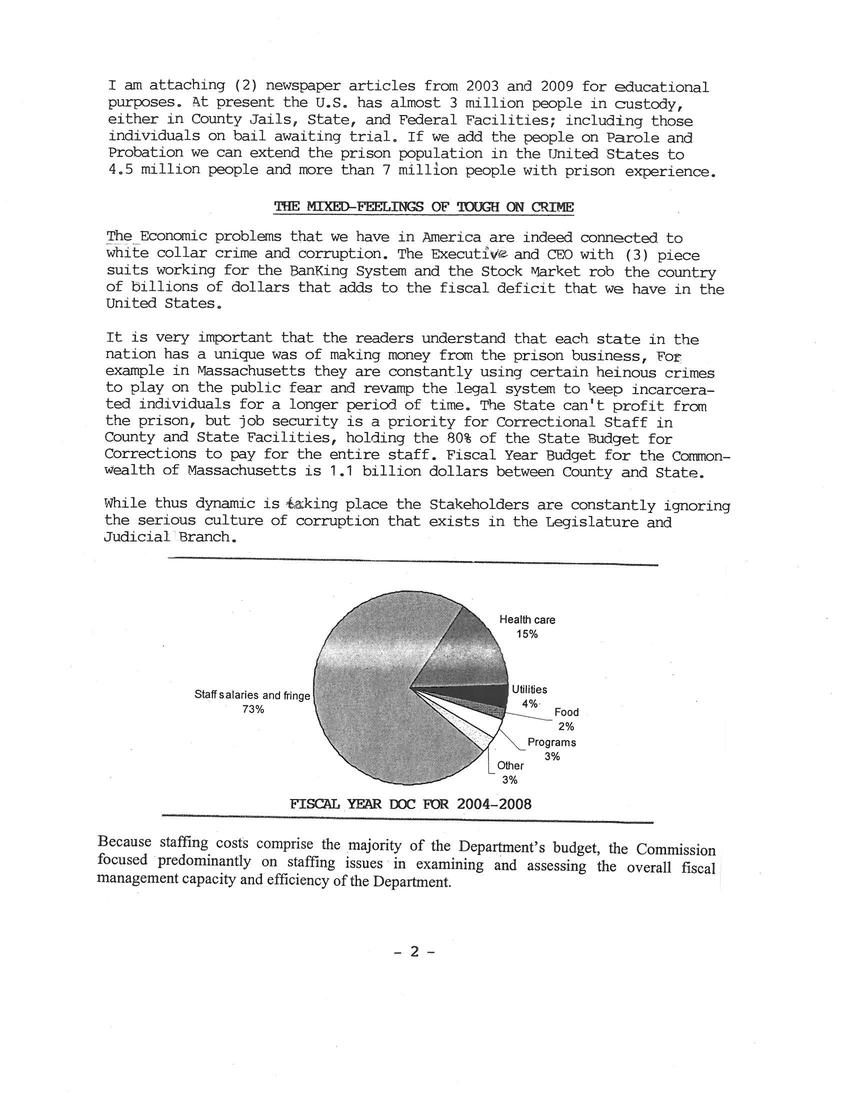
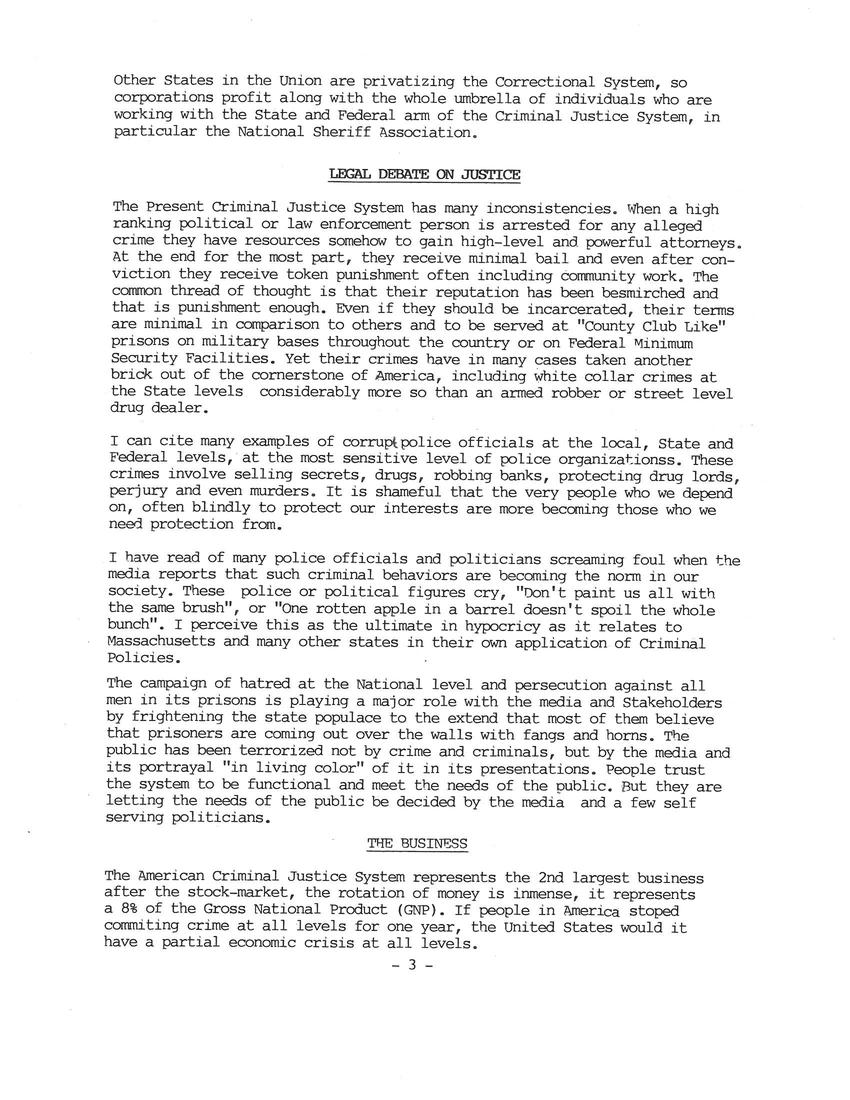
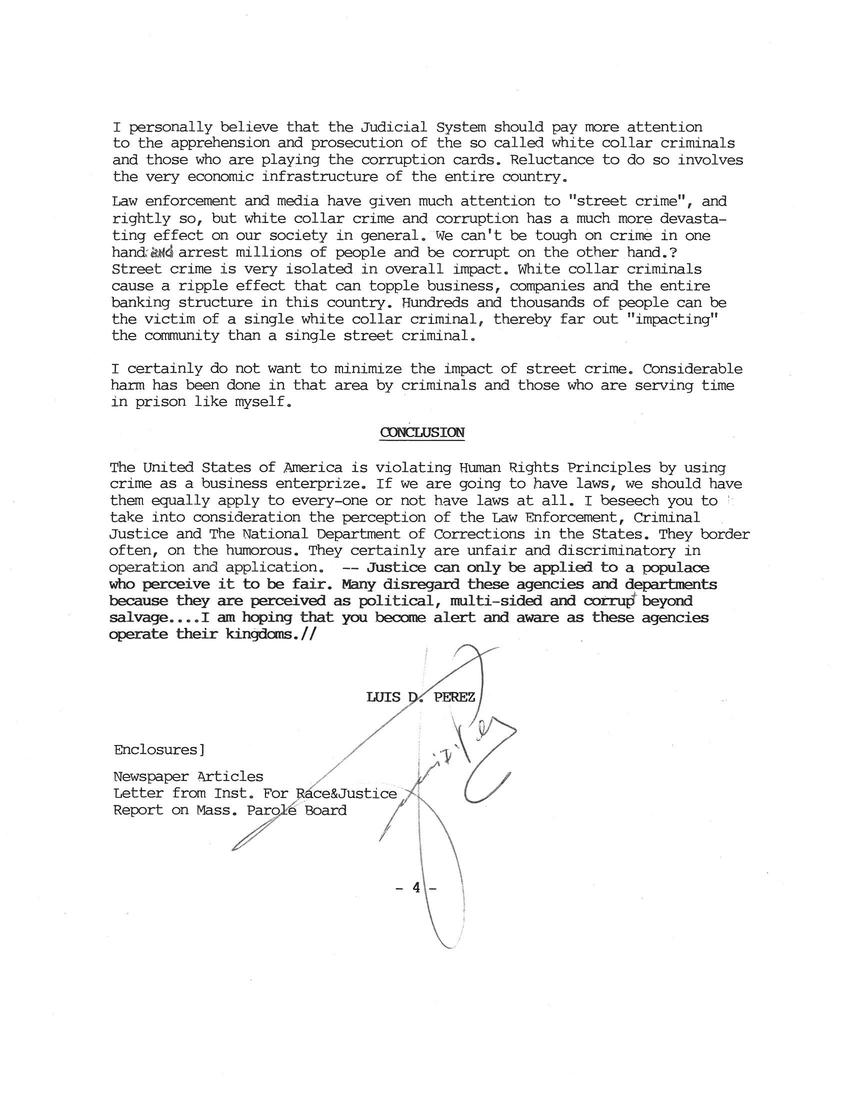
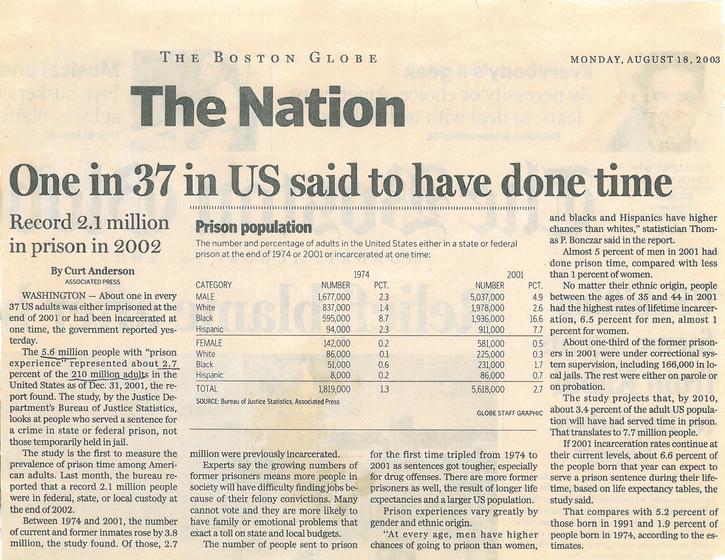
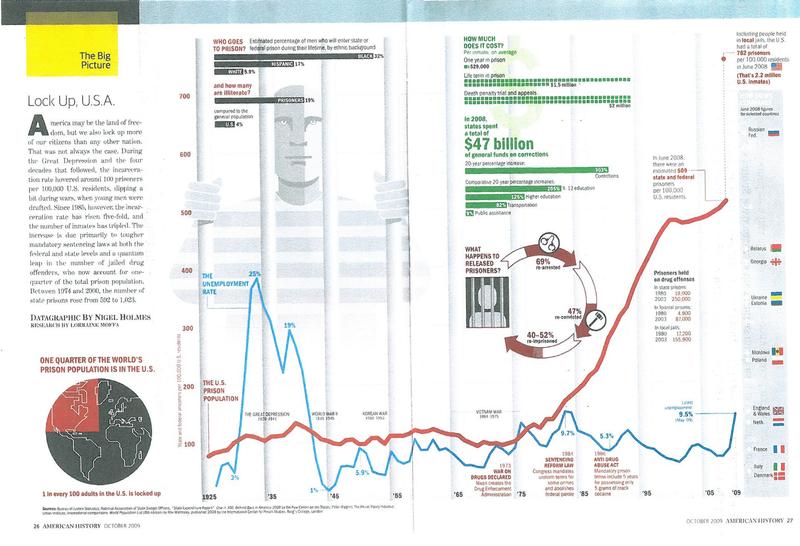

Replies